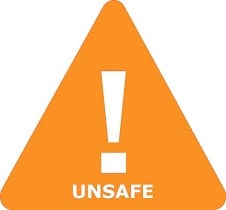Is Iodine-123 Safe in Breastfeeding
Question
I am a breastfeeding mother and i want to know if it is safe to use Iodine-123? Is Iodine-123 safe for nursing mother and child? Does Iodine-123 extracts into breast milk? Does Iodine-123 has any long term or short term side effects on infants? Can Iodine-123 influence milk supply or can Iodine-123 decrease milk supply in lactating mothers?
Iodine-123 lactation summary

- DrLact safety Score for Iodine-123 is 5 out of 8 which is considered Unsafe as per our analyses.
- A safety Score of 5 indicates that usage of Iodine-123 may cause serious side effects in breastfed baby.
- Our study of different scientific research indicates that Iodine-123 may cause moderate to high side effects or may affect milk supply in lactating mother.
- Our suggestion is to use safer alternate options rather than using Iodine-123 .
- It is recommended to evaluate the advantage of not breastfeeding while using Iodine-123 Vs not using Iodine-123 And continue breastfeeding.
- While using Iodine-123 Its must to monitor child for possible reactions. It is also important to understand that side effects vary largely based on age of breastfed child and time of medication in addition to dosage.
- Score calculated using the DrLact safety Version 1.2 model, this score ranges from 0 to 8 and measures overall safety of drug in lactation. Scores are primarily calculated using publicly available case studies, research papers, other scientific journals and publically available data.
Answer by Dr. Ru: About Iodine-123 usage in lactation
Radioactive iodine is concentrated in thyroid and breast milk and may suppress thyroid function in infants.The I-123 is used as a diagnostic agent. Its mean physical radioactive lifetime is 13.2 hours and the half-life of biodegradation is 3.5 to 5.8 hours. After 10 physical half-lives, the element ceases to have significant radioactivity and after 5 biological half-lives its concentration in the milk is negligible.If you want to limit exposure to 0 mili Servers (mSv), you should stop breast-feeding for a period equivalent to from 5 to 10 biological half-lives. It is also possible to determine the radioactivity in milk samples.Since the annual natural background radiation we receive is around 6 mSv, for a more conservative approach we should wait just long enough to achieve an infant exposure of less than 1 mSv (0.1 rem) The iodine-123 that is administered to nursing mothers must be pure, that means, without containing traces of I-124 and I-125 Recommended time for transient weaning to ensure reducing exposure to 1 mSv: I-123 as sodium iodine hippurate or orto-iodo hippurate: Doses up to 100 MBq (4 mCi) waiting time= 8 to 12 hours. According to Nuclear Regulatory Commission of the United States: it is not necessary to stop breastfeeding. I-123 as sodium iodide. Doses up to 20 MBq (0.5 mCi) waiting time= 3 to 6 hours. According to Nuclear Regulatory Commission of the United States: it is not necessary to stop breastfeeding. I-123 as iobenguane (I-123 meta-iodobenzylguanidine, I-123-MYBG). Discontinue breastfeeding for 12, 24 or 48 hours depending on whether the dose was 150, 370 or 400 MBq (4, 10 or 11 mCi). I-123 as ioflupane: Stop breastfeeding from 1 to 6 days. If you want to continue breastfeeding, extraction and storage of breast milk in a freezer for days or weeks must be previously ensured. During the suggested days for interruption of breastfeeding after the test is done, the child can be fed exclusively with the milk previously stored or using both breast milk and formula. After the test you can continue extracting and storing the milk in a separated freezer for 10 physical half-lives (132 hours = 5.5 days, once radiation is gone and it can be used for feeding the baby). Mothers receiving a dose as lower as 400 MBq for a thyroid scan are not in need to refrain from close contact with their children.
Alternate Drugs for Radioactive Isotope, Radioisotope, Radionuclide, Diagnostic Radiopharmaceuticals. ATC V09
Gallium Citrate Ga 67(Unsafe)
Technetium Tc 99m Sestamibi(Low Risk)
Cooper-64(Unsafe)
Strontium-89M(Dangerous)
Fludeoxyglucose F18(Unsafe)
Gallium-67 Citrate(Unsafe)
Scintigraphy(Unsafe)
Indium-111(Unsafe)
Raclopride 11C(Unsafe)
Sodium-Radioactive Isotope(Unsafe)
Thallium-201(Unsafe)
Technetium 99m sestamibi(Low Risk)
Positron Emission Tomography(Unsafe)
Xenon -133(Low Risk)
Iodine-125(Unsafe)
Iodine-131(Unsafe)
Technetium 99m exametazime(Low Risk)
Technetium 99m DiMercaptoSuccinic Acid(Low Risk)
Technetium 99m Pentetate (DTPA)(Low Risk)
Technetium 99m mertiatide (MAG3)(Low Risk)
I-131(Unsafe)
131I(Unsafe)
